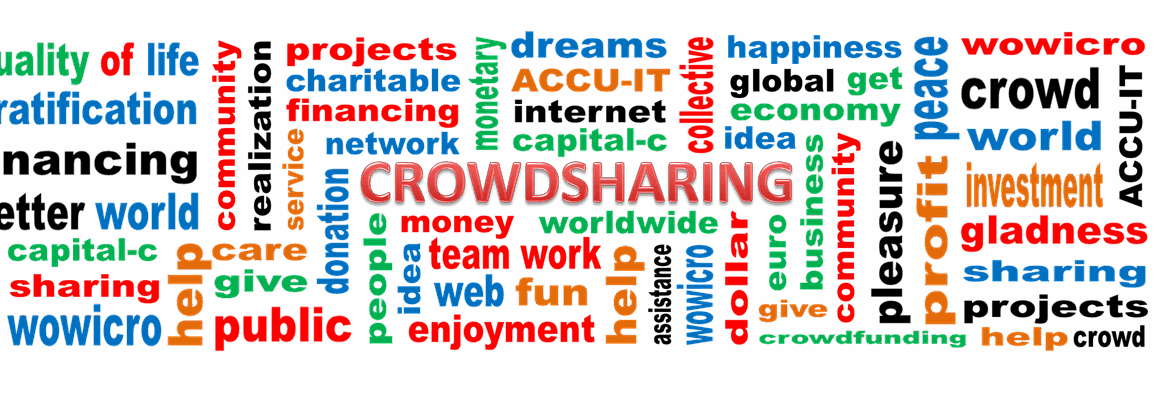Understanding Crowdfunding Regulations: A Comprehensive Guide
Crowdfunding regulations are critical for both investors and project creators. These regulations ensure that crowdfunding meets specific standards, fostering a trustworthy environment. They vary significantly across jurisdictions, which means it’s essential for participants to understand the local laws governing their activities. The regulations generally revolve around investor protection, funding limits, and disclosures required from project developers. Moreover, these laws often categorize crowdfunding into different types, such as equity, reward-based, and donation-based crowdfunding. Each type has distinct rules that regulate how funds can be raised and what disclosures are necessary. For instance, equity crowdfunding allows investors to gain ownership in exchange for their funding, necessitating comprehensive disclosures about the business. Furthermore, regulatory bodies such as the Securities and Exchange Commission (SEC) in the U.S. provide guidelines to protect investors from fraudulent schemes. As a result, project creators must familiarize themselves with these requirements to avoid legal pitfalls and ensure their campaign’s success. It’s also crucial to understand the implications of operating in multiple jurisdictions if the crowdfunding campaign intends to attract international contributions.
The Importance of Compliance in Crowdfunding
Compliance with crowdfunding regulations serves as a safeguard for investors and promotes ethical fundraising practices. Adhering to these rules can significantly affect a project’s credibility and success rate. Investors are more likely to contribute to campaigns that demonstrate transparency and compliance with local laws. Regulatory adherence generally includes preparing detailed business plans, financial forecasts, and risk disclosures, which provide clarity about what investors can expect. Not only does compliance protect investors, but it also helps project creators build trust within the community. By following the rules, creators can avoid facing penalties that might arise from non-compliance, such as fines or campaign shutdowns. Moreover, platforms that host crowdfunding campaigns often have built-in compliance checks to ensure projects meet regulatory requirements before allowing them to go live. This proactive approach benefits all parties involved by streamlining the process while reducing the risk of fraud. In short, compliance is not just a legal obligation; it’s a necessary step towards fostering a sustainable crowdfunding ecosystem where both investors and creators can thrive.
Understanding the various types of crowdfunding is vital for knowing the associated regulations. Equity crowdfunding allows investors to purchase shares in return for their contributions, thus requiring extensive disclosures about the business’s financial health. On the other hand, reward-based crowdfunding enables backers to receive non-financial rewards, often in the form of products or services, usually without stringent regulatory scrutiny. Donation-based crowdfunding embraces charitable contributions without offering any financial returns, resulting in looser regulations compared to other models. Additionally, lending-based crowdfunding is another area where participants seek returns through interest on their loans. Each crowdfunding model necessitates different regulatory compliance and investor protections. For example, equity crowdfunding sectors often have caps on how much individuals can invest during a campaign, while platforms must register with regulatory bodies if they facilitate such transactions. The landscape is constantly evolving, requiring campaign creators to stay informed about new regulations and guidelines that may affect their initiatives. By understanding these distinctions, stakeholders can better navigate the complex environment of crowdfunding and establish campaigns that are both successful and compliant.
Global Perspectives on Crowdfunding Regulations
Globally, crowdfunding regulations differ vastly, reflecting each country’s approach to investment and financial markets. Countries like the United States have established specific guidelines through the SEC, allowing a relatively open environment for crowdfunding activities, yet emphasizing investor protection. The European Union, by contrast, has introduced a framework, known as the European Crowdfunding Service Providers Regulation (ECSPR), which focuses on harmonizing rules across member states. This directive promotes cross-border crowdfunding while ensuring safety for investors and projects alike. In contrast, countries in developing regions might impose stricter controls or unclear guidelines, making it challenging for platforms and creators. These discrepancies create a complex landscape for international crowdfunding campaigns, often requiring extensive legal research and local expertise. Additionally, many countries are continuously evolving their regulations to adapt to rapid market changes, resulting in a constant need for stakeholders to stay informed. Understanding these global perspectives enhances the ability of project developers and investors to make informed decisions, whether operating locally or internationally. Ultimately, a clear comprehension of varied regulations can lead to more successful crowdfunding ventures.
Legal accountability forms a cornerstone of crowdfunding regulations, serving to protect both investors and project founders. Many platforms and projects are required to implement stringent due diligence policies to verify the legitimacy of propositions. These policies typically include background checks, financial health assessments, and risk analyses to ensure that campaigns are not only viable but also ethical. Failure to conduct such due diligence can result in legal ramifications, including penalties, fines, or even criminal charges in extreme cases. Investors must feel confident about where their money is going, which is why transparency is heavily advocated in regulatory guidelines. This includes clear disclosures of potential risks, expected returns, and detailed information about project leaders. Furthermore, educational initiatives aimed at both investors and creators help raise awareness about their respective rights and obligations. By fostering a better understanding of accountability measures, platforms can cultivate a safer crowdfunding environment that encourages responsible investment. Therefore, both legal safety measures and ethical practices become vital components of successful crowdfunding endeavors.
Challenges in Navigating Regulations
Navigating crowdfunding regulations presents numerous challenges for project creators. Each country or region might have different rules which require extensive research to understand fully. Moreover, regulatory frameworks are often not static; they evolve in response to market trends, creating a moving target for compliance. This dynamism can pose significant hurdles for startups, particularly those with limited resources. Additionally, varying disclosure requirements can be bewildering, as some jurisdictions may demand comprehensive financial audits, while others enforce minimal transparency standards. The lack of standardized regulations can ultimately lead to confusion and misinformation about what is acceptable. These barriers could dissuade potential funding sources if they perceive a lack of regulatory clarity. Furthermore, the risk of falling victim to regulatory traps exists, as some projects may accidentally contravene laws simply due to misunderstanding complex guidelines. Given these challenges, building a robust advisory network, perhaps by consulting legal experts, can greatly enhance a project’s ability to navigate regulatory landscapes successfully. This proactive approach leads to smoother operations and increased confidence among potential investors.
As the crowdfunding landscape continues to expand, the need for continuous education around regulations and best practices becomes evident. Both project creators and investors must stay updated with both local and international regulations related to crowdfunding. Educational workshops, webinars, and online courses can provide valuable insights into compliance and regulatory changes. Furthermore, platforms themselves often host resources and materials to assist users with understanding regulations applicable to their campaigns. Investors should also familiarize themselves with the specific laws in the jurisdictions they wish to fund in, as this knowledge will help mitigate risks. Crowdfunding associations and online communities can serve as additional support networks where participants share experiences and insights. Advocating for professional development within the field can empower individuals to become knowledgeable stakeholders, ultimately benefiting the entire ecosystem. On top of this, regulatory bodies might consider providing clearer guidelines, creating standard frameworks that would simplify the compliance process. Therefore, fostering an informed community of stakeholders strengthens the crowdfunding realm and ensures its sustainability in a fast-paced financial environment.
Ultimately, staying compliant with crowdfunding regulations is essential for the successful initiation and execution of crowdfunding campaigns. Many factors contribute to this necessity, including legal obligations, investor protection, and ethical considerations. Proper adherence to these regulations can significantly enhance trust and credibility for project creators, making it crucial to plan and execute campaigns within these guidelines. As crowdfunding continues to gain popularity, it will attract new stakeholders, necessitating a deeper understanding of the associated regulations. Therefore, ongoing education and adaptation are fundamental. The stakes are high; inappropriate handling of regulations can jeopardize projects and dissuade investors. In conclusion, crowdfunding regulations should not be viewed merely as hurdles but as foundational elements that contribute to a thriving crowdfunding ecosystem. This perspective fosters a culture of responsibility and trust, ultimately benefiting all parties involved. As the industry evolves, continued engagement with regulatory bodies and active participation in discussions surrounding guidelines will pave the way for future innovations. Specifically, collaboration among regulators, platforms, and project developers will lead to a more transparent, efficient, and impactful crowdfunding environment.


